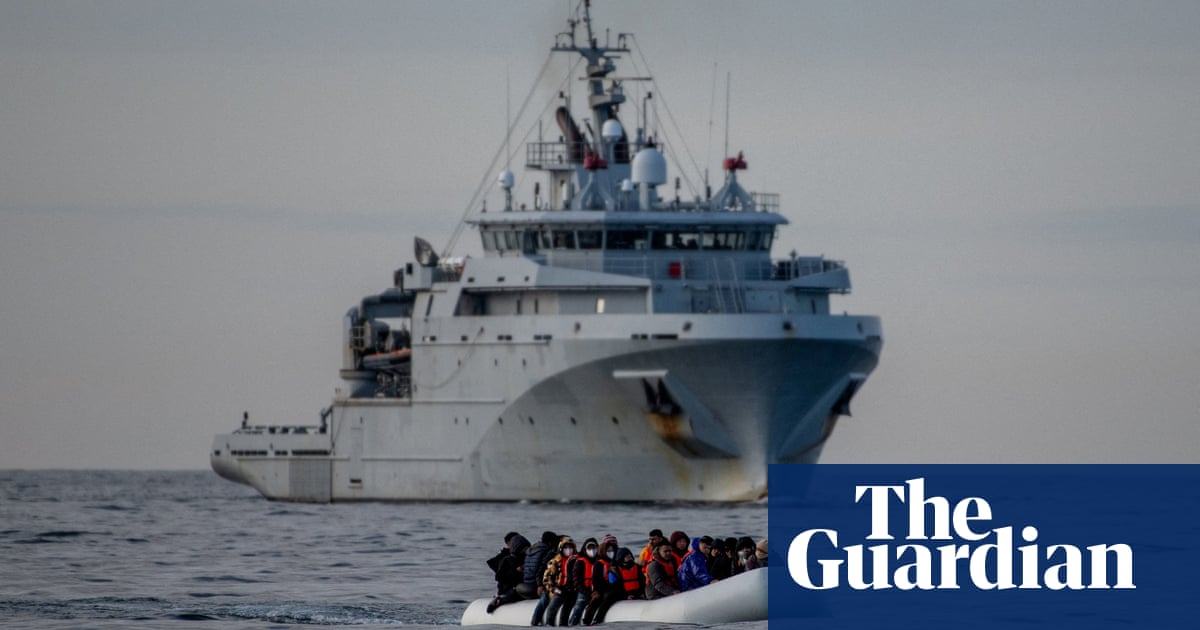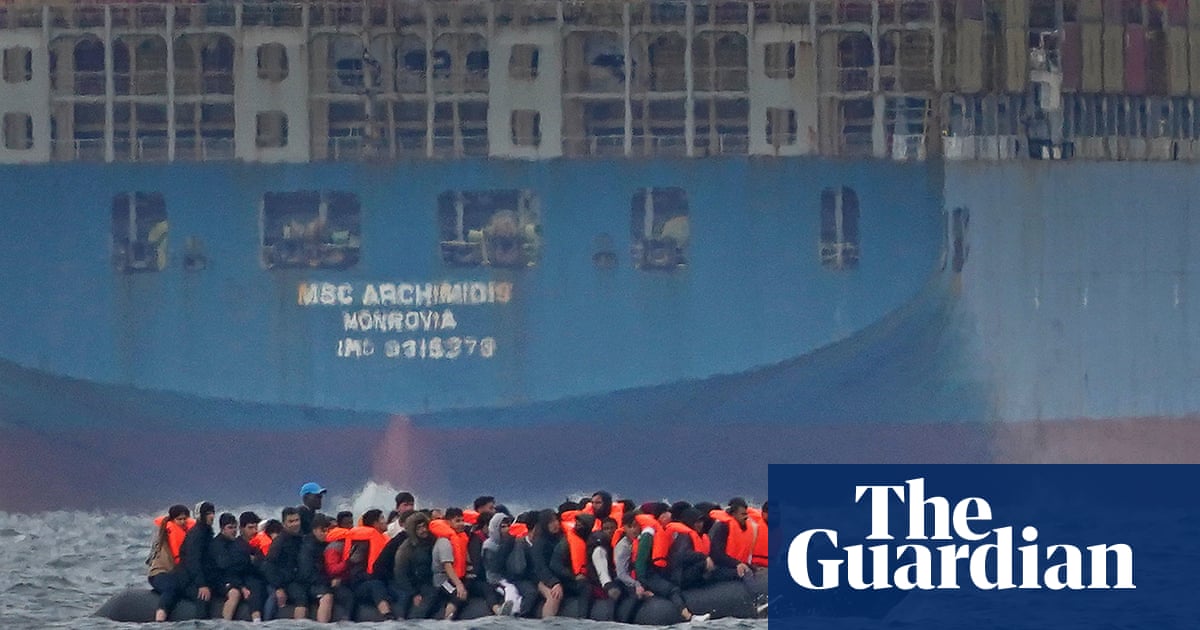
Priti Patel, for so long the darling of the Conservative party’s hard right, is having a difficult weekend.
Once again, she is grappling with the same issue that has dominated her tenure as home secretary – how to stop people seeking refuge by travelling to the UK in small boats.
Patience in Downing Street ran out on Friday in the face of the latest figures showing that 1,185 people crossed the Channel in a single November day – a record daily number for this century.
After lobbying from Conservative MPs on Thursday, Boris Johnson ordered a review of the problem. Headed by Stephen Barclay, it aims to draw together different government departments to solve an issue which is key to the voting intentions of many Conservative voters.
Stung by the inquiry, sources close to Patel appear to have blamed civil servants in her own department for blocking policies and legal changes.
The Mail on Sunday reported that she has become so frustrated by the obstructions of officials and legal advisers that she could yet write to the cabinet secretary, Simon Case, to list her department’s failings.
But Patel has also helped to force the issue to the top of the government’s agenda with 11 high-profile declarations that she will stop small boats from arriving in the UK.
“I am absolutely committed to doing everything in my power to stop these dangerous Channel crossings which are putting vulnerable lives at risk,” she said in October 2019.
A year later, she claimed that progress was being made. “We are already seeing fewer migrants leaving French beaches,” she said.
The statistics have told a different story. More than 23,500 have crossed the Channel in small boats this year –– almost triple the 8,420 that made the journey in 2020, which was then a record, and more than 10 times as many as arrived in the year Patel became home secretary.
Patel was accused of desperation last week when she told reporters in Washington that the EU’s open borders policy was to blame. “The real problem on illegal migration flows is the EU has no open border protections whatsoever,” she said.
The number of people travelling to the UK by small boats has increased, but the actual number of people trying to claim asylum has decreased.
There were 37,235 asylum applications in the year ending June 2021, down 4% on the previous 12 months and less than half what it was in the early 2000s.
Campaigners for refugees often point out that Britain receives a fraction of the asylum applications of Germany and France and fewer per resident than the EU average.
Civil servants concede that the government will have to cooperate closely with France if this issue is to be solved.
So far Patel has agreed two multimillion-pound deals with the French authorities to pay for more surveillance of the 93 miles of French coastline that has been used to reach the UK.
A £28m deal in November 2020 was followed up with a £54m agreement in July to fund a doubling of French police patrols on their northern coastline. The UK has also repeatedly requested that joint Border Force and French navy patrols be deployed in the Channel, but that has been rejected.
But critics say that even with greater cooperation and resources, the length of the coastline and the profitability of the route – officials last week claimed that people smugglers can make £300,000 a boat – mean those wishing to enter the UK will not be put off.
Campaigners for refugees have claimed that opening safe and legal routes for asylum seekers to apply to come to the UK would stop many of those seeking to enter the UK via small boats.
For almost all people fleeing desperate circumstances, hoping to reunite with family members in the UK or seeking security there, there is no application form that exists and no process that can facilitate a safe and legal journey. The Home Office expects people to physically reach the UK before an asylum application can be lodged.
However, government sources say such a policy would result in a rush of applications from bogus applicants and not from those fleeing persecution.
The government has claimed it is ready to use a controversial policy of pushing boats back towards France once they are intercepted in UK waters. But there are no reports of it ever being used in the UK, and the government’s own internal legal advice says that if they use this tactic they are likely to be sued.
The policy risks breaching international maritime law, which could have criminal implications for Border Force officers involved in both British and French courts. One union representing officers has already sought legal advice over a possible judicial review of the policy.
The Nationality and Borders bill, expected to become law in the spring, will give the government powers to process asylum seekers offshore to deter illegal migration to the UK.
Patel hopes to emulate the approach taken by Australia where asylum seekers are processed almost 3,000 miles away from its mainland on a remote island in the central Pacific.
UK government officials have claimed they are in secret negotiations with multiple countries around the world including Albania over a deal. The Albanian prime minister has issued a categorical denial, saying this is “fake news”.
The cost could also be prohibitive. Home Office sources have claimed it could cost £100,000 a person to send someone to accommodation abroad – which could cause a further, unwelcome backlash.












